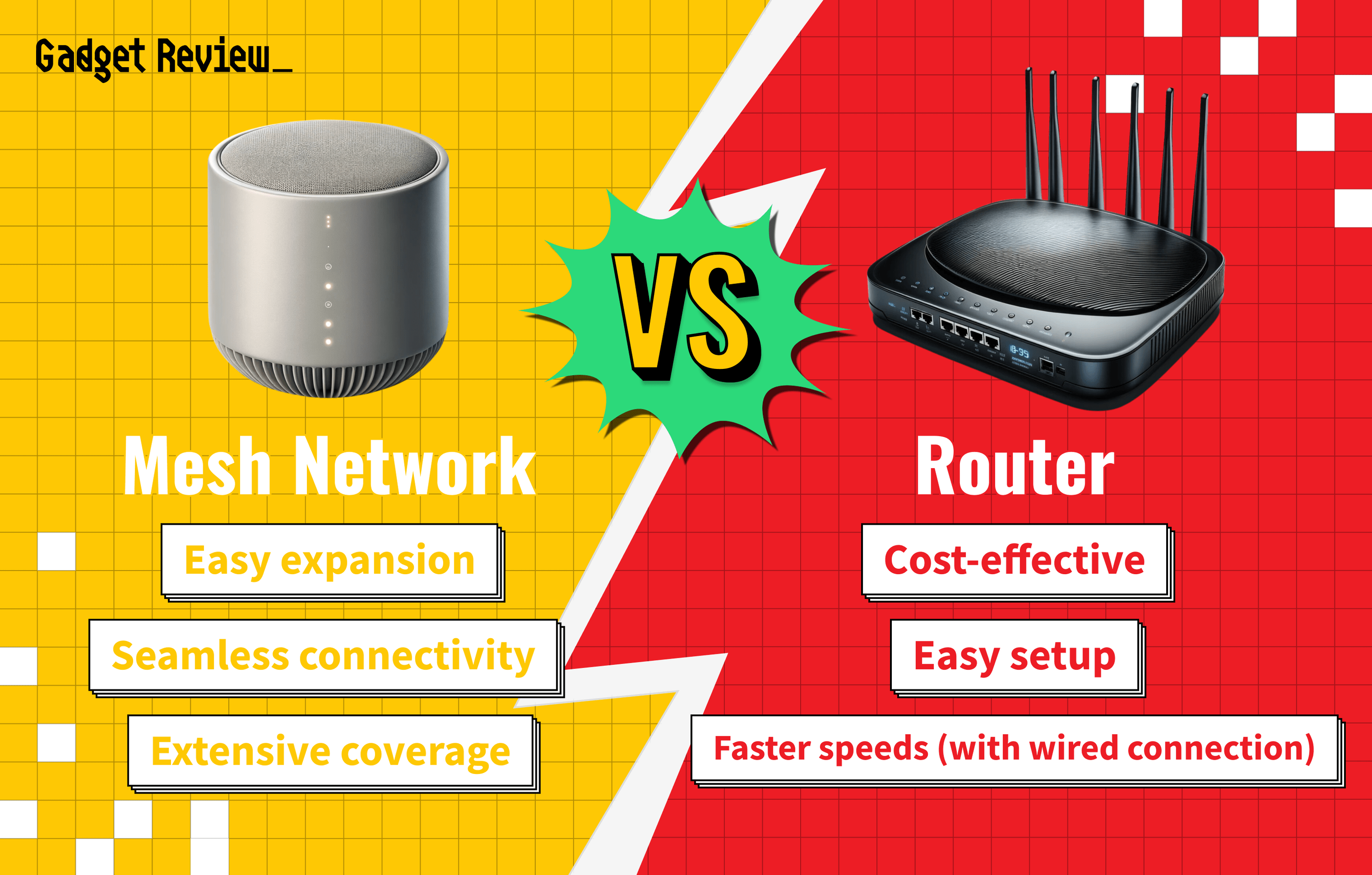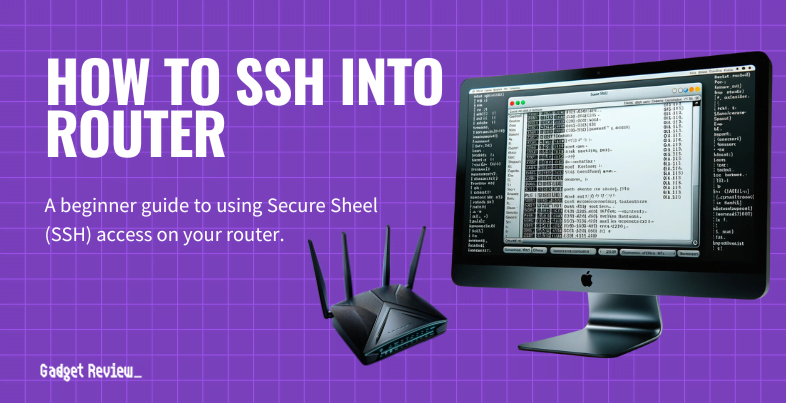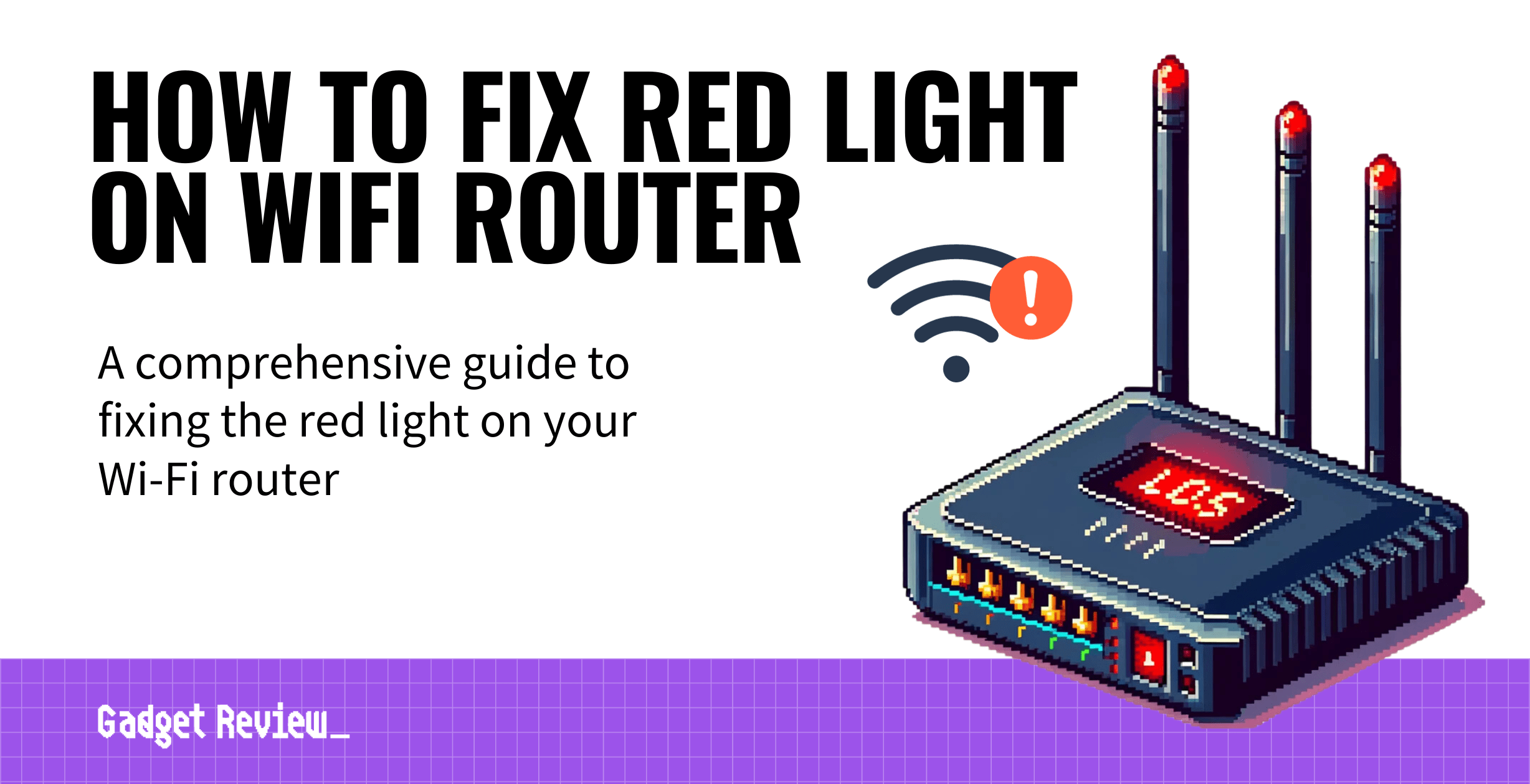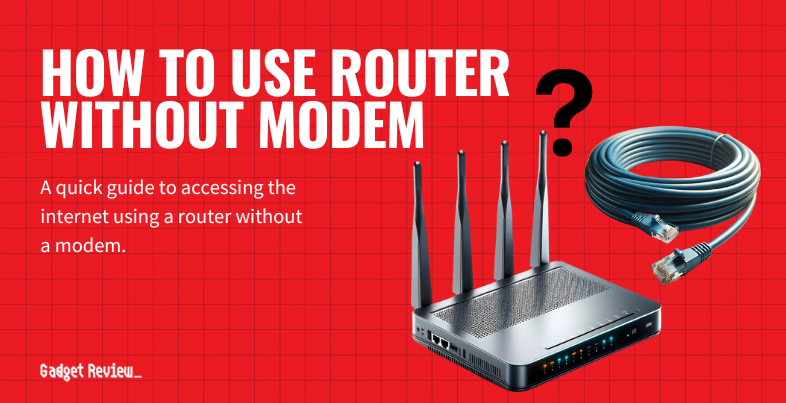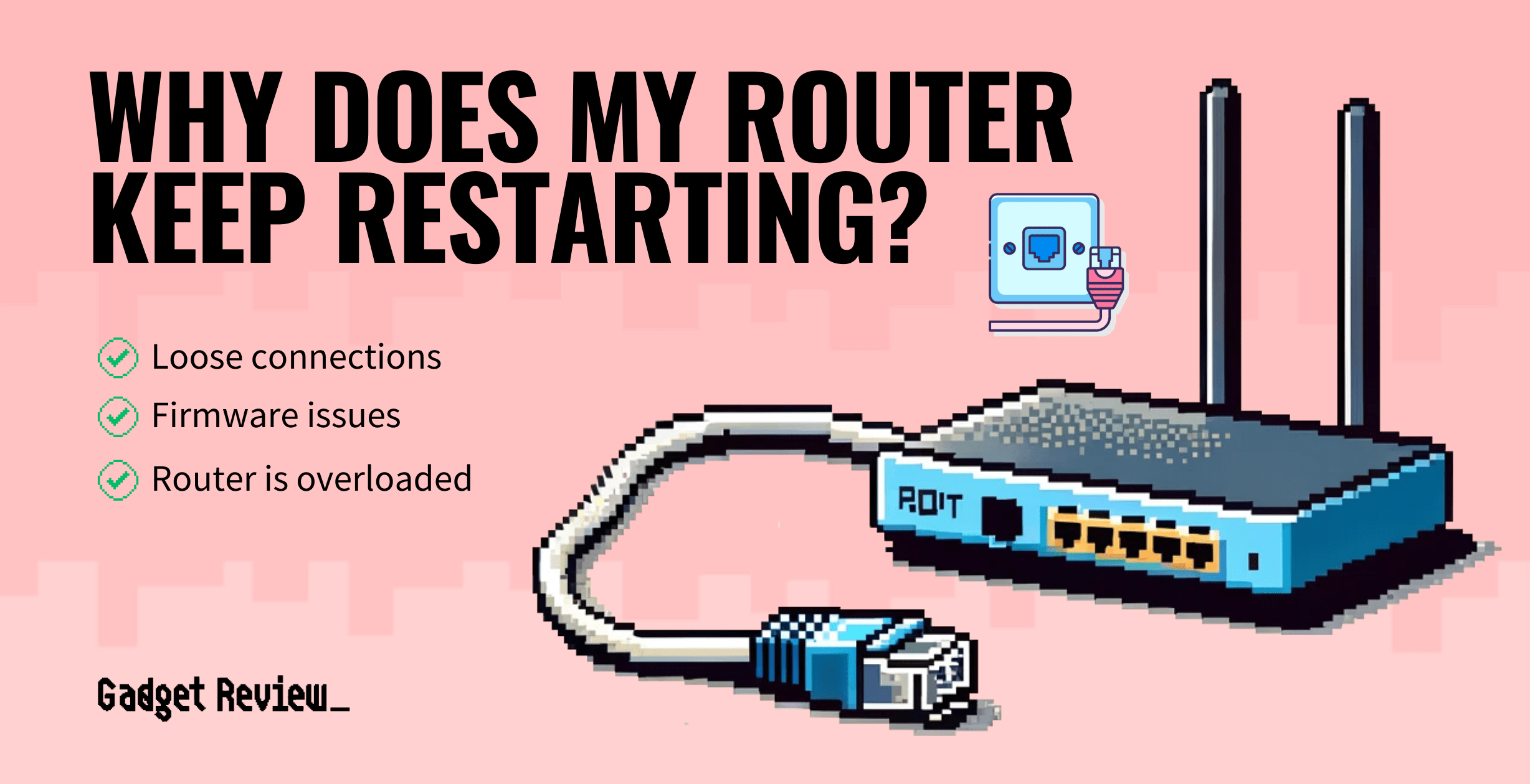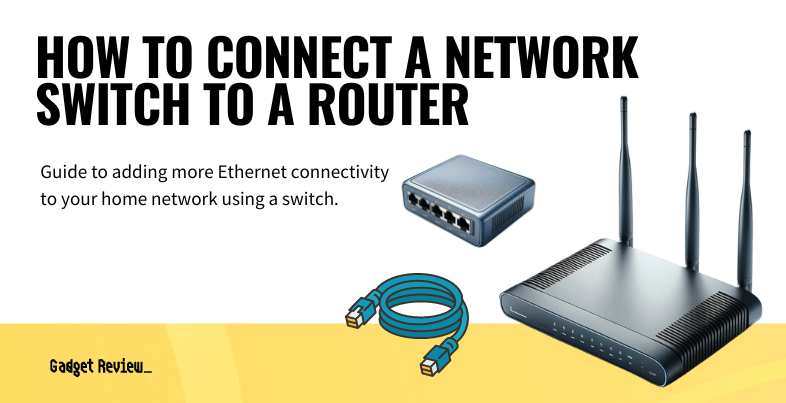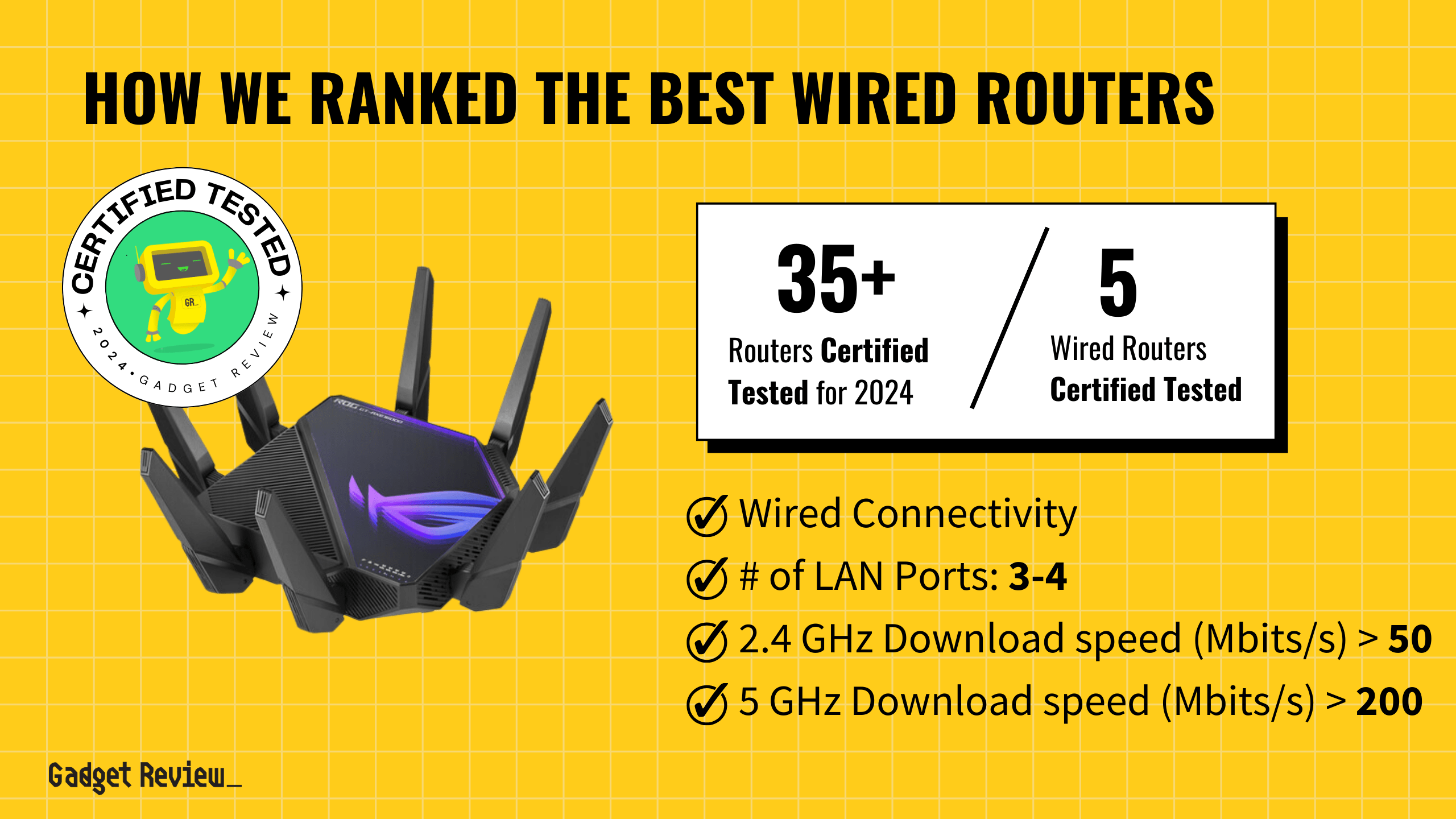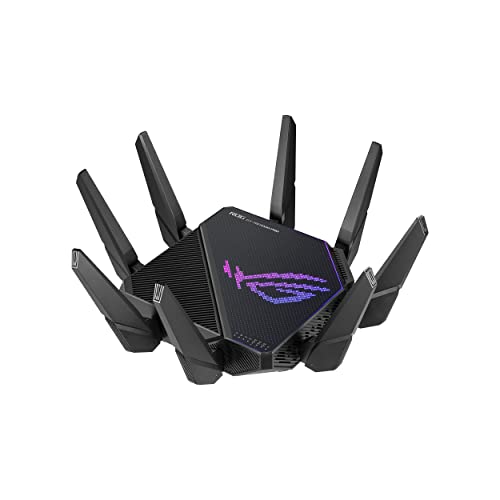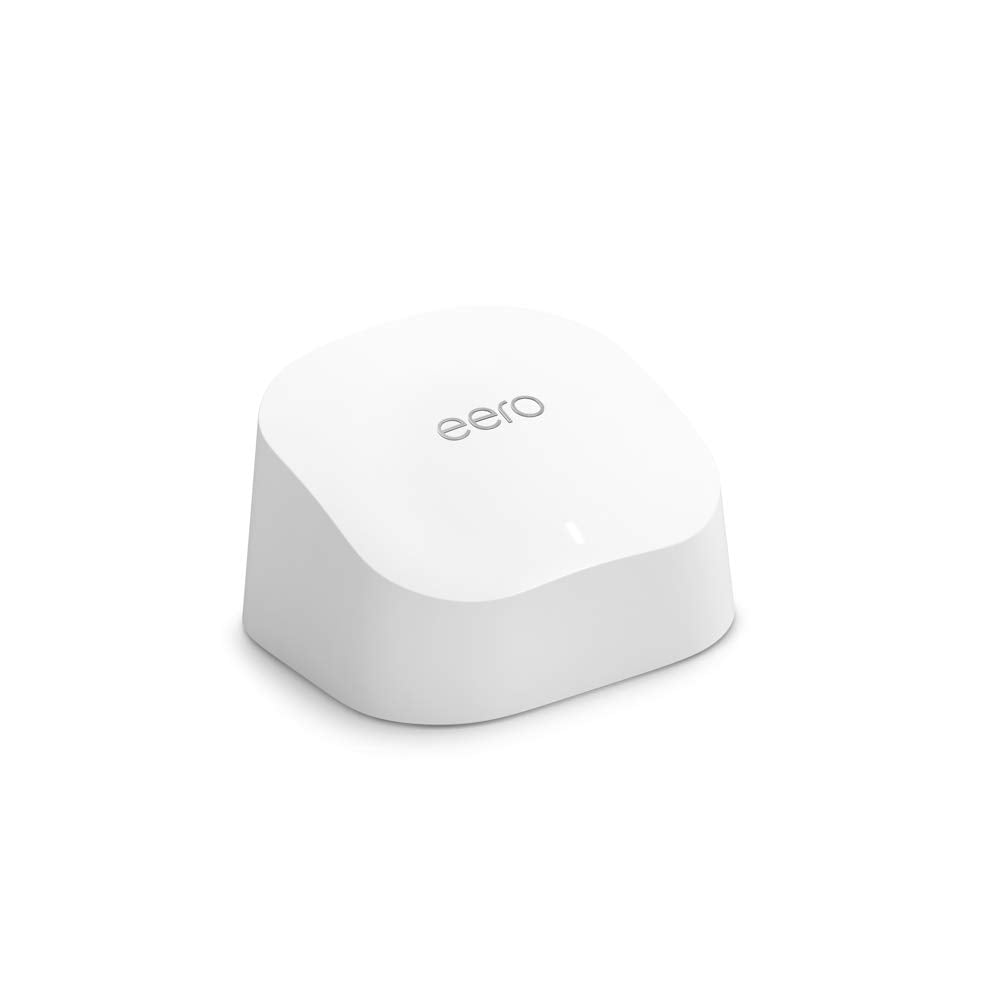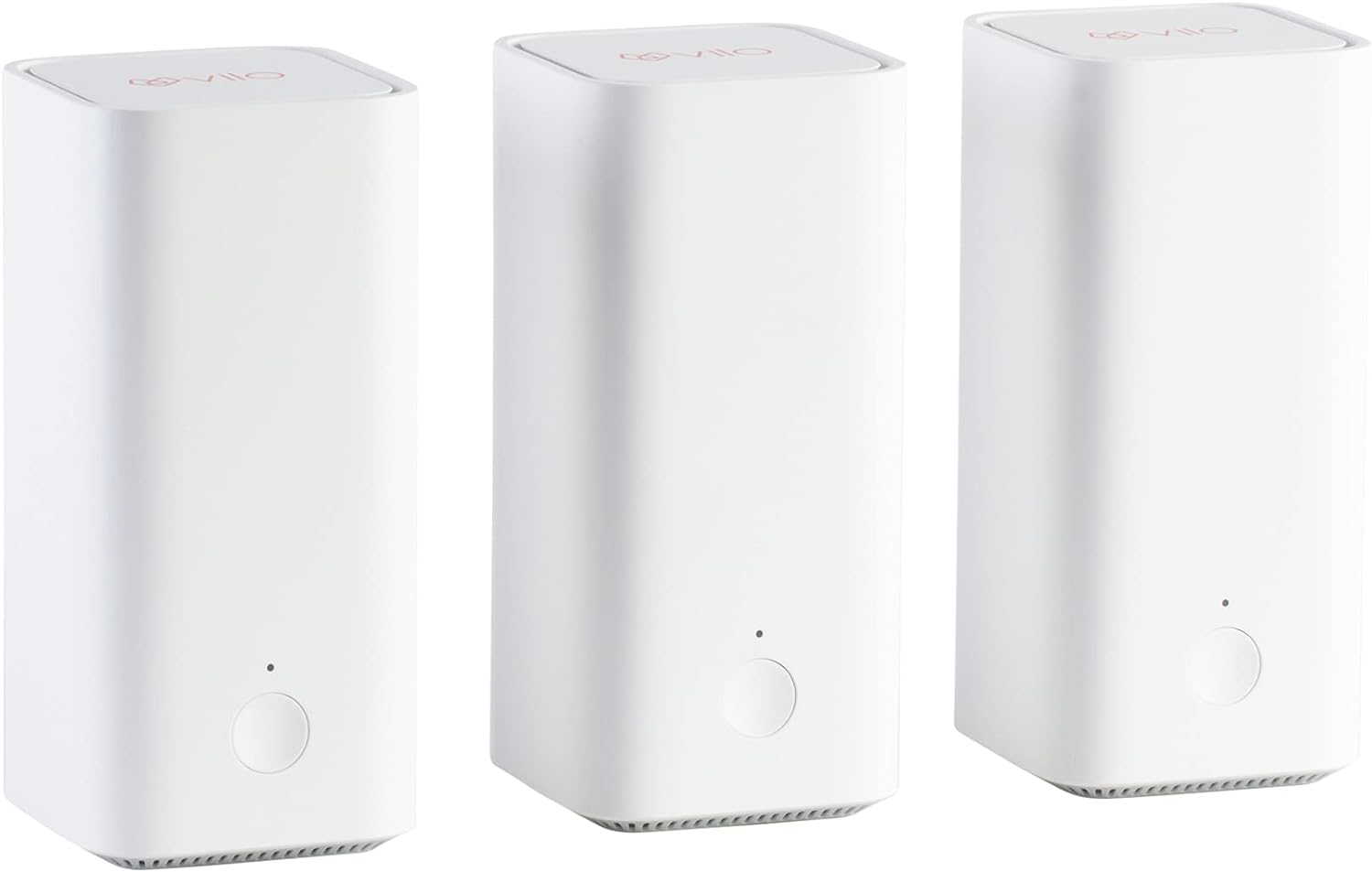It can be hard to choose the best router, but we can help. If you’ve noticed a new product category that’s quickly started to dominate, mesh wifi routers, you wonder what that is. The basic difference is these mesh routers use multiple nodes to connect to the internet instead of just one like a traditional router. This allows for wider coverage than a standard router.
Key Takeaways_
- Mesh networks provide superior coverage and seamless connectivity, ideal for large homes and smart home devices.
- Traditional routers can offer faster speeds, especially with an Ethernet cable, and simpler setups, better suited for smaller spaces.
- The integration of mesh technology into traditional routers is emerging as a hybrid solution, combining the extended coverage of mesh systems with the stability and speed of traditional routers.
If that sounds great for your situation, check out the best mesh wifi system.
Comparative Analysis: Mesh Network vs Router
When comparing mesh networks and traditional routers, several factors stand out.
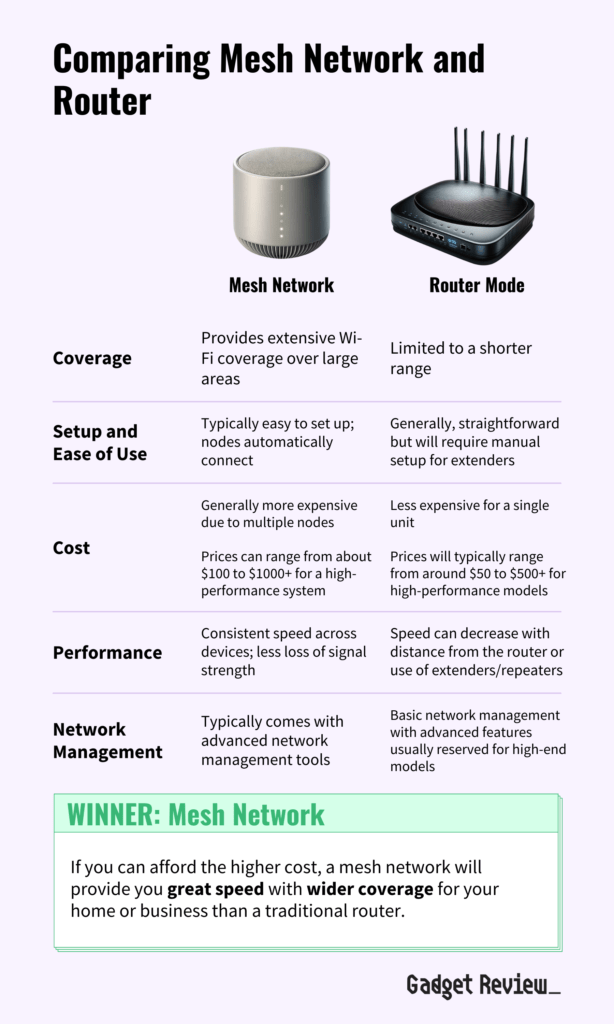
| Feature | Mesh Network | Traditional Router |
|---|---|---|
| Coverage | Provides extensive Wi-Fi coverage over large areas | Limited to a shorter range |
| Setup and Ease of Use | Typically easy to set up; nodes automatically connect | Generally, straightforward but will require manual setup for extenders |
| Cost | Generally more expensive due to multiple nodes Prices can range from about $100 to $1000+ for a high-performance system | Less expensive for a single unit Prices will typically range from around $50 to $500+ for high-performance models |
| Scalability | Easily scalable by adding more nodes | Limited scalability; may need extenders |
| Performance | Consistent speed across devices; less loss of signal strength | Speed can decrease with distance from the router or use of extenders/repeaters |
| Network Management | Typically comes with advanced network management tools | Basic network management with advanced features usually reserved for high-end models |
| Aesthetics and Design | Compact and typically designed to blend into home decor | Varies, but often bulkier and less designed for display |
| Ideal Use Case | Large homes or offices with many devices | Smaller homes or places with fewer devices |
Coverage is the biggest advantage of mesh Wi-Fi systems. They excel in providing extensive Wi-Fi coverage across larger homes, effectively eliminating dead zones.
Traditional routers, while powerful within a limited range, often require additional Wi-Fi extenders to match the coverage offered by mesh systems.
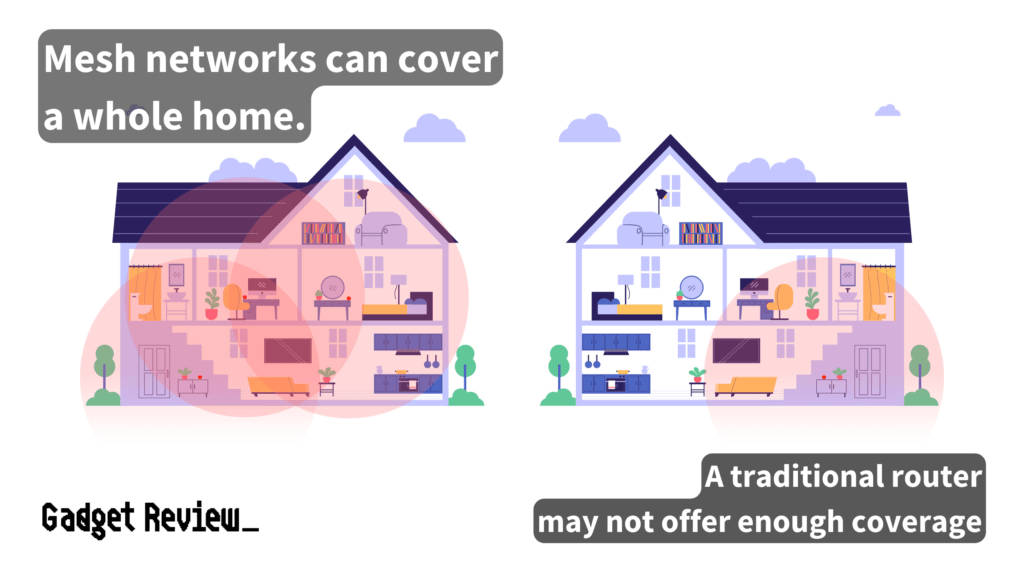
In terms of speeds, traditional routers can provide faster speeds, especially when connected via Ethernet cables. However, mesh systems are not far behind, especially with advancements in technologies like Wi-Fi 6 and Wi-Fi 6E.
Mesh systems also offer more consistent signal strength throughout the home, whereas traditional routers may have signal strength issues at farther distances.
Pros and Cons
Mesh Networks:
- Pros: Superior coverage, seamless connectivity between mesh nodes, easy to expand, and ideal for smart home devices.
- Cons: Generally more expensive, can be overkill for small spaces, and setup can be complex.
Traditional Routers:
- Pros: Cost-effective, offers faster speeds with Ethernet connection, simpler setup, efficient for smaller spaces.
- Cons: Limited range, may require Wi-Fi extenders, may struggle with many connected devices.
Understanding Mesh Networks

Mesh networks represent a modern solution to a common challenge: Wi-Fi coverage and signal strength in larger homes and offices. Unlike a traditional router that provides a single access point, mesh systems consist of multiple mesh nodes working together to create a seamless Wi-Fi network.
Each node is essentially a mini router, extending the Wi-Fi signal across a broader area, ensuring that connected devices receive a strong signal regardless of their location in the space.
The beauty of mesh Wi-Fi systems is their flexibility. You can easily add additional nodes to enhance coverage even more. This makes them ideal for large, sprawling layouts where a single router might struggle to provide comprehensive coverage.
Mesh networks are particularly adept at handling numerous wireless devices, from smart speakers to laptops and everything in between, without sacrificing internet speed. Brands like Eero and Netgear Orbi have become synonymous with robust mesh Wi-Fi systems, offering features like Wi-Fi 6E for even faster speeds and better bandwidth management.
Understanding Traditional Routers
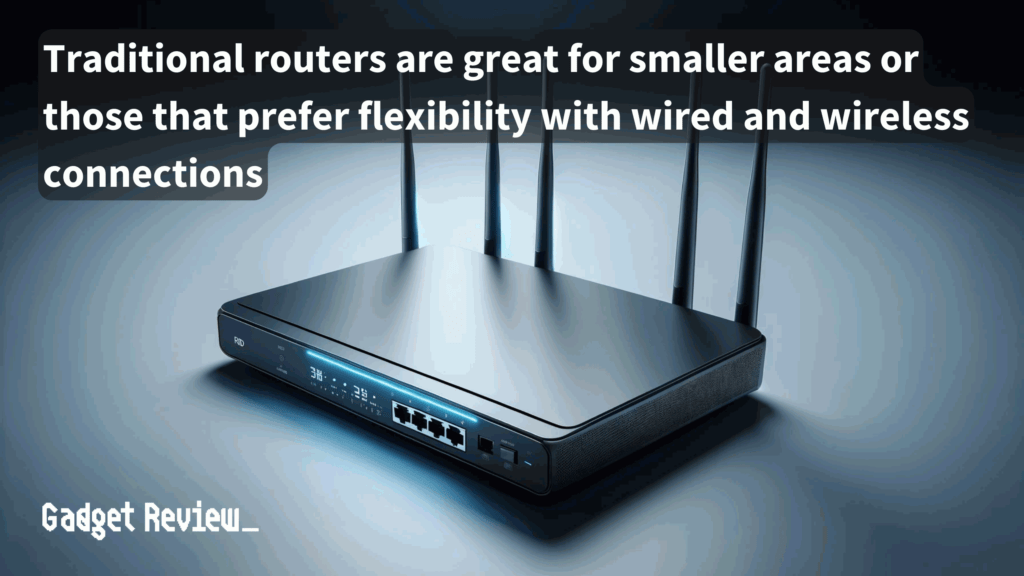
Traditional routers have been the cornerstone of home and office networks for years. A traditional Wi-Fi router connects to your modem and provides a Wi-Fi network for your wireless devices.
These routers are known for their simplicity and effectiveness in smaller spaces or environments where a single access point suffices.
Models from brands like Netgear have evolved to offer features such as Wi-Fi 6, which provides faster speeds and better handling of multiple connections. Check out our page on how many devices a router can handle if you are worried you have too many devices for your network.
Traditional routers often come with Ethernet ports, allowing for wired connections that offer faster speeds and the most stable internet connection.
They also typically support guest networks and parental controls, making them versatile for various home uses.
However, the range of traditional routers is limited. In larger homes, the Wi-Fi signal may weaken the further you get from the router.
There are Wi-Fi extenders that can help with this, but they are not as good as a mesh network. They are used to boost the signal strength, but they often create a separate network, which can be a hassle to manage. You may also run into the issue of your WiFi booster not working.
If you are curious, you can check out a comparison of traditional routers with our page on wireless routers g vs n.
Real-World Scenarios
Home Office: For a home office, a stable internet connection is crucial. Mesh networks ensure that every corner of the house, including the office space, has a strong Wi-Fi signal.
Traditional routers are suitable if the office is close to the router and there are fewer wireless devices.
Large Homes: Mesh Wi-Fi systems shine with larger homes. The ability to place mesh nodes in different areas ensures consistent Wi-Fi coverage and signal strength throughout the house.
Traditional routers might require Wi-Fi extenders to achieve similar coverage, which can complicate network management.
High-Bandwidth Activities: For activities like gaming or streaming, traditional routers with Ethernet cables offer the fastest speeds with the lowest latency.
However, modern mesh systems are increasingly capable of handling demanding tasks wirelessly, thanks to advancements like Wi-Fi 6.
Unique Perspectives
Mesh Wi-Fi Networks are evolving rapidly. Innovations like Wi-Fi 6E in mesh systems are pushing the boundaries of wireless network performance to offer speeds and bandwidth previously unattainable in wireless setups.
Traditional routers are also evolving, with models supporting higher speeds and more connections.
An interesting trend is the integration of mesh technology into traditional routers, blurring the lines between these two network systems.
This hybrid approach can offer the best of both worlds – the stability and speed of traditional routers with the extended coverage of mesh systems.
Service providers are also recognizing the value of mesh systems, with some internet service providers offering mesh Wi-Fi as part of their packages. This trend indicates a shift towards mesh networks as a standard solution for residential and small office internet service.
Related Articles:


